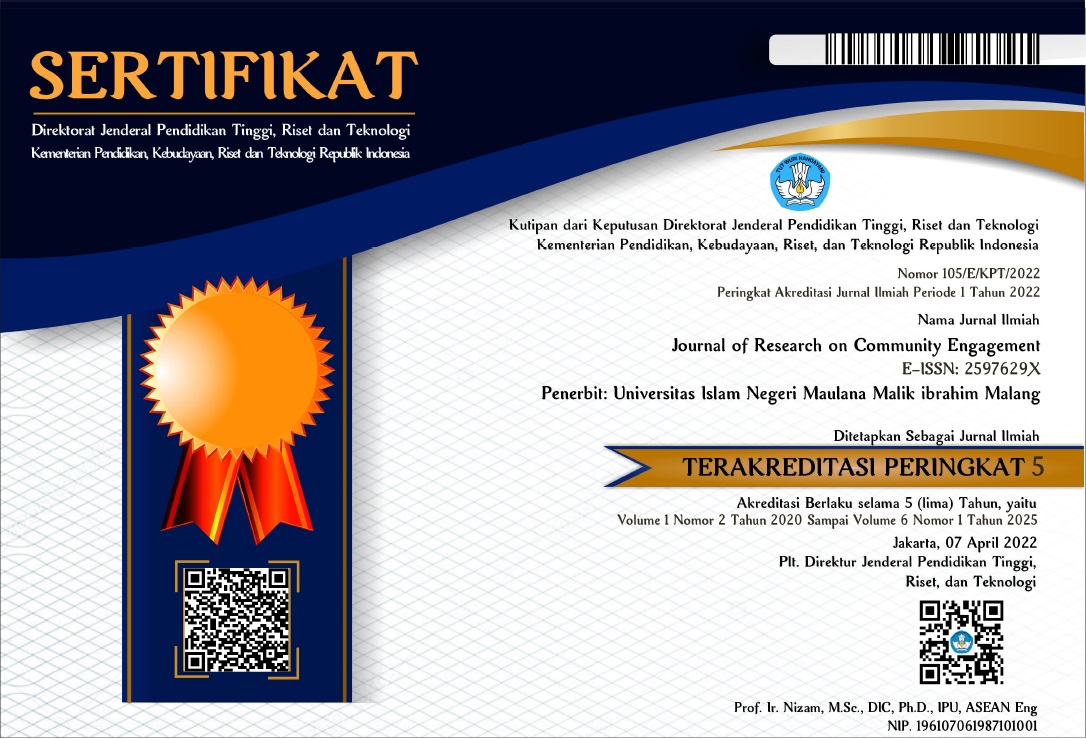Kajian Faktor-Faktor yang Mempengaruhi Kegagalan dan Keberhasilan Pendampingan BLK Komunitas Menjadi Inkubator Wirausaha di Wilayah Jawa Timur, Nusa Tenggara Barat dan Nusa Tenggara Timur
Abstract
This study evaluates the factors that influence the success and failure of Community Vocational Training Centers (BLKK) in transforming into entrepreneurial incubators in East Java, West Nusa Tenggara and East Nusa Tenggara. The study used survey and field observation methods involving 23 new incubators. Data were collected through a questionnaire assessing 10 key indicators, including facilities, quality of trainers, access to funding, and external cooperation, as well as direct visitation to review specific factors affecting incubator success. The results showed that most incubators have successfully provided significant support to tenants, with an average success index of 4.36. Key supporting factors include adequate facilities and infrastructure, the quality of experienced mentors, and the potential of the region surrounding the incubator. However, some incubators still face obstacles such as limited funding and business legality issues. Recommendations are given to improve these aspects to make incubator mentoring programs more effective in the future.
Full Text:
PDFReferences
[1] L. Yuldinawati, D. Tricahyono, G. Anggadwita, and D. T. Alamanda, “Towards a framework for ICT-based entrepreneurship development through business incubation processes: case study of a techno park,” International Journal of Business and Globalisation, vol. 21, pp. 32–45, 2018, doi: 10.1504/IJBG.2018.10015255.
[2] C. Li, N. Ahmed, S. A. Qalati, A. Khan, and S. Naz, “Role of Business Incubators as a Tool for Entrepreneurship Development: The Mediating and Moderating Role of Business Start-Up and Government Regulations,” Sustainability, vol. 12, p. 1822, 2020, doi: 10.3390/su12051822.
[3] A. Baskaran, V. Chandran, and B.-K. Ng, “Inclusive Entrepreneurship, Innovation and Sustainable Growth: Role of Business Incubators, Academia and Social Enterprises in Asia,” Science, Technology and Society, vol. 24, pp. 385–400, 2019, doi: 10.1177/0971721819873178.
[4] H. Haugh, “Call the midwife! Business incubation, enterprise development and entrepreneurship enablement in developing economies,” 2020, doi: 10.17863/CAM.40052.
[5] T. Nestorenko, A. Ostenda, Y. Kravchyk, and O. Nestorenko, “Entrepreneurship and universities: a place of academic business incubators,” Ukrainian Journal of Applied Economics and Technology, 2022, doi: 10.36887/2415-8453-2022-1-7.
[6] M. Adair, B. Kenny, and H. McGuirk, “Stand Alone or Continue to Support: Exploring the Need for Post Incubation Services for New and Growing Enterprises.,” Irish Business Journal, 2021, doi: 10.34719/fe8r-qz96.
[7] W. Setiawan and I. Fahmi, “Business Incubator Supporting Diffusion of Innovation, Entrepreneurship Development And Job Creation,” Proceedings of the 23rd Asian Forum of Business Education(AFBE 2019), 2020, doi: 10.2991/aebmr.k.200606.041.
[8] L. Xiao and D. North, “The graduation performance of technology business incubators in China’s three tier cities: the role of incubator funding, technical support, and entrepreneurial mentoring,” J Technol Transf, vol. 42, pp. 615–634, 2017, doi: 10.1007/S10961-016-9493-4.
DOI: https://doi.org/10.18860/jrce.v6i2.29364
Refbacks
- There are currently no refbacks.
Copyright (c) 2025 Ahmad Abtokhi, Agus Maimun, Angga Dwi Mulyanto, Alfin Mustikawan, Mohammad Sholahuddin, Agus Mulyono, Oktarina Eka Hartanti, Ugi Nofiantoro, Syaiful Mustofa

This work is licensed under a Creative Commons Attribution-ShareAlike 4.0 International License.
Editorial Office:
Lembaga Penelitian dan Pengabdian Masyarakat
Universitas Islam Negeri Maulana Malik Ibrahim Malang
Jalan Gajayana 50 Malang, Jawa Timur, Indonesia 65144
Phone: (0341) 558915
E-mail: jrce@uin-malang.ac.id

JRCE (Journal of Research on Community Engagement) is licensed under a CC BY-SA 4.0.


.jpg)

